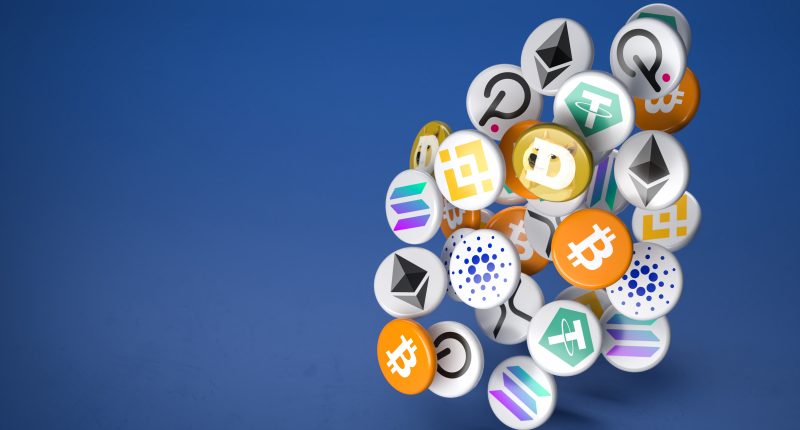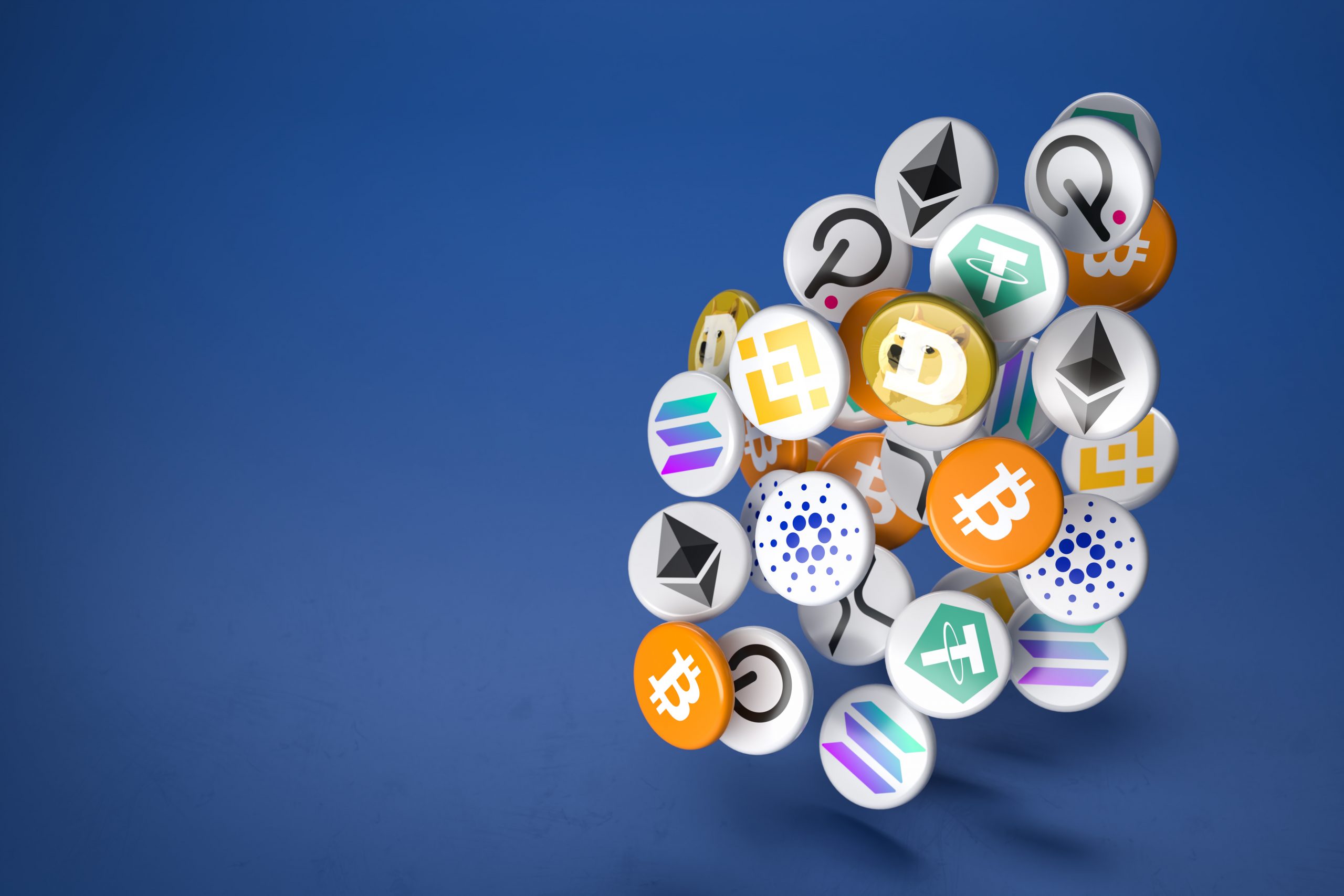With Coinbase shining a light on progressive Canadian crypto legislation, investors are keen to identify the best among these digital assets to buy and potentially realize venture-style returns.
While the U.S. Securities and Exchange Commission has taken a more aggressive approach to controlling the cryptocurrency industry, the Canadian Securities Administrators (CSA) have opted to put investor protection measures in place, such as leverage restrictions and enhanced custody expectations, while affording exchanges ample time to comply. The CSA also offers educational resources and a list of registered exchanges to inform investor decisions.
Canadian regulators’ ability to craft strict parameters that preserve market integrity makes for an environment where crypto projects can thrive or fail on their own merits, free from the risk of total loss because of a legislative ban. Unlike in the United States, this means Canadian investors can evaluate the best crypto to buy with the reasonable expectation of a long time horizon to realize value.
Before we get into our picks, let’s start with the basics, so we’re all on the same page in terms of what it means to invest in a cryptocurrency.
Blockchains and their cryptocurrencies
A blockchain is an encrypted and virtually unchangeable online database to record transactions in its native cryptocurrency, as well as information of interest, such as legal contracts or a company’s inventory, that can benefit from a secure means of authentication.
Blockchains record and encrypt information on blocks that are verified and distributed in decentralized fashion across vast computer networks, which maximize security and prevent any processed block from being changed by any one user. Among the many transaction processing mechanisms out there, the most popular are proof-of-work, the time-based proof-of-history method, and proof-of-stake, where validators put up a minimum amount of native cryptocurrency as collateral.
Hundreds of thousands of blockchain networks have been founded since Bitcoin, the largest cryptocurrency by market cap, debuted in 2009. These networks compete with each other by offering increasingly fast and versatile software development tools that have led to the creation of innumerable applications across games, finance, social media, supply chain management, identity verification, real estate and more, each of which collects revenue through cryptocurrency transactions. It’s this software, coupled with network transaction fees and investor sentiment, that differentiate the best crypto projects to buy from their competition.
Owners of a given blockchain’s native cryptocurrency are usually afforded proportional governance rights over the network, the ability to hand over their holdings to become a validator, which compensates them with a portion of network transaction fees, and the ability to profit from future appreciation of the cryptocurrency in question.
How we identified the best crypto for Canadian investors to buy
Our research process for narrowing down our picks began with studying transaction fee and market cap data to determine the most cash-rich projects with the highest adoption.
We then scanned the recent news and software development landscape through key crypto publications like CoinDesk and Coin Telegraph, as well as more mainstream outlets, to glean a sense of which projects are showing the strongest signs of staying power.
After a balanced consideration of the data, here is our list of the top 5 cryptos worth buying and holding over the long term:
- Bitcoin, up 67.93 per cent year to date
- Ethereum, up 44.72 per cent year to date
- Solana, up 132.16 per cent year to date
- Cardano, up 9.33 per cent year to date
- Avalanche, up 3.78 per cent year to date
Here’s an in-depth look at our findings about why these projects could lead to outsized returns, followed by an important reminder about the risks involved in holding crypto in your portfolio.
Bitcoin is a cryptocurrency launched in 2009 by an anonymous person or group known as Satoshi Nakamoto. Bitcoin’s network is designed to facilitate peer-to-peer transactions without the need for a financial institution acting as intermediary.
Unlike subsequent cryptocurrency projects whose use-cases lean more toward software development, Bitcoin was created for exclusive use as a currency and has been adopted as such in a number of significant ways, including:
- As a means of transaction in countries with hyperinflated currencies, such as Venezuela and Argentina, or dictatorial regimes, such as China, Russia and Saudi Arabia, where citizen surveillance is more prevalent
- To sidestep excessive money wire fees, which can be many multiples above fees on the Bitcoin network
- To digitize bill payments in underrepresented areas, transforming a task that once involved traveling into town and standing in line at a bank to a few clicks on one’s phone
- To perform decentralized financial transactions, offering users complete control over their Bitcoin without fear of bank or government intervention
These widespread applications have propelled the price of Bitcoin from less than C$100 in 2013 to more than C$35,000 as of Monday, putting its market capitalization at an industry leading C$735 billion across a user base of approximately 200 million people.
Bitcoin’s incredible scale has lent it global awareness and a sense of trust that any currency must rely on to preserve value. While its return trajectory, like most cryptos, has been volatile, with multiple 60-80 per cent collapses, it has achieved a compound annual return of more than 75 per cent over the past decade.
With COVID-19 stimulus devaluing the Canadian dollar and higher interest rates putting a cap on stock returns, Bitcoin’s growing adoption is putting any doubts about its bright future to bed.
2. Ethereum as crypto’s index fund
Ethereum is an open-source blockchain network that hosts more than 450,000 other cryptos, including 40 in the top 100 by market cap. It also facilitates the execution of smart contracts, which are contracts encoded to enforce without a third party.
The distributed network has succeeded in becoming a global platform for decentralized applications, where developers can create and run software that is resistant to censorship and fraud. Its more than 5,000 developers and about 400,000 daily active users make Ethereum one of the world’s most important technological development hubs representing billions in VC funding.
Ethereum’s vast roster of hosted projects generates billions in transaction fees for the network every year, including US$1.679 billion in Q1 2022, affording it an almost 10x cushion compared with its closest competitor.
Ethereum’s cryptocurrency, Ether or ETH, is valued at a little more than C$2,300, has yielded a return on investment of approximately 270 per cent since inception in 2014, and commands the second-largest market cap in the sector at just over C$282 billion.
Owning ETH offers investors exposure to sizeable cash flow, as well as a diversified selection of projects, which should mitigate volatility while maintaining a high potential for continued returns. Much like the widest-reaching index funds, an investment in Ethereum is an investment in a broad market that seeks capital appreciation over the long term.
3. Solana’s need for speed
Third on our list of best crypto to buy is Solana, an open-source blockchain project launched in March 2020 to provide decentralized finance (DeFi) solutions.
The project’s goal is to improve scalability through its proof-of-history consensus mechanism, which shortens transactions and lowers fees through a novel way of calculating timestamps, which would otherwise need approval from validators before transactions could be processed.
Solana can process up to 65,000 transactions per second at an average cost of US$0.00025, making it an ideal choice for money transfers and high-frequency retail and institutional traders.
While the network averages only about US$50,000 per day in fees, it boasts more than 11.5 million user accounts that have executed more than 210 billion transactions and counting, each of them with a carbon footprint equivalent to a handful of Google searches. In terms of returns, Solana’s native cryptocurrency, known as SOL, is up 30 times since 2020 to US$31.24 per token.
Home to a growing project ecosystem, Solana has clearly differentiated itself from Bitcoin and Ethereum, which can process only seven and 30 transactions per second, respectively, placing it well on its way to earning the moniker of The Visa of Crypto.
4. Cardano’s force for good
Cardano is a proof-of-stake blockchain platform focused on facilitating positive global change and rebalancing power toward those on the margins. Its native cryptocurrency, ADA, is named after 19th century mathematician Ada Lovelace, who is widely thought of as the world’s first computer programmer.
The Cardano network’s decentralized apps and smart contracts are already creating the positive change at the heart of its mission, including helping agricultural companies track their produce from field to table, securing educational credentials, and working with retailers to authenticate their goods and prevent counterfeits.
Unlike other blockchain networks, all of Cardano’s technological developments must be vetted through a peer-reviewed research process that encourages stability, longevity and real-world value creation.
The ADA token has risen by approximately 100 per cent over the past three years – well ahead of the S&P 500’s 30 per cent gain over the period – as the Cardano project prepares for “a series of technical enablers that will create bridges between blockchain and wider society” over the near future, according to a statement from Frederik Gregaard, CEO of the Cardano Foundation.
With the total value of ADA staked on the platform growing 148 per cent from January to June 2023, users seem to be enthused about developments to come.
5. Avalanche’s compartmentalized design
Our final pick for the best crypto investors can buy is Avalanche, a proof-of-stake blockchain platform for decentralized applications and customized blockchain networks.
The network aims to stand out among its rivals in the smart contract space, including Ethereum, by processing about 4,500 transactions per second without compromising scalability. This output is possible thanks to Avalanche’s streamlined three-chain system, which divides computing demand among:
- The X-Chain, where users can create and exchange the native AVAX token and other assets
- The C-Chain, where smart contracts and decentralized applications operate
- The P-Chain, which is in charge of coordinating network validators
Avalanche’s family of decentralized apps attracts about 1 million monthly active users and spans computing infrastructure development, smart contract creation, data analytics, DeFi, gaming and education, among many others. This high level of network activity stems from Avalanche rewarding validators beyond staking-based earnings if they post high uptime and fast response times, as opposed to networks like Ethereum, where payments for processing transactions are more strictly stake dependent.
If you’d bought AVAX tokens on a public exchange shortly after its 2020 debut, you would have tripled your money as of Thursday, demonstrating, along with our other picks, how even nascent assets with extremely high volatility can produce extraordinary returns for those patient enough to wait.
The risks of investing in cryptocurrency
With cryptocurrency representing approximately C$1.5 trillion in market cap, and exciting industry breakthroughs becoming more common, it’s no surprise that more than 4 million Canadians hold an allocation to crypto in their portfolios (full disclosure, that includes this writer).
That said, investors should be well aware of the unique risks associated with owning these assets before acquiring stakes on a regulated Canadian exchange. These include, but are not limited to:
- Crypto’s short lifespan and limited return history, making standout results across the board over the past few years a potential flash in the pan
- Crypto’s lack of common investor protection measures against fraud and insolvency
- Regulatory uncertainty in the U.S. and other parts of the world that may limit the functionality and reach of the Canadian crypto market
- The U.S. Securities and Exchange Commission’s view that many cryptos are securities spreading across the world – driven by the U.S. accounting for about 50 per cent of global stock market activity – resulting in crypto projects having to file regular financial disclosures, none of which do so at present. This would bring fundamental metrics into a market that has been almost entirely based on qualitative investment analysis, likely resulting in severe losses
Unlike stocks, which have data going back about a century supporting their long-term wealth creation, crypto’s role as an asset class is one of speculation, where investors must build conviction based on project activity and ensuing sentiment without hard numbers to classify performance as good or bad. This means investing in crypto is more of an art than a science, with risks that cannot be mitigated through diversification and thorough due diligence.
Given this state of affairs, we recommend that any funds you wish to allocate to crypto should be funds you’re willing to lose in their entirety.
You can click here to learn more about interesting crypto projects we did not discuss, including Uniswap, a crypto exchange platform that racks up more than US$500,000 in fees per day, and Polygon, the leading project bringing scaling and advanced infrastructure to the Ethereum network.
All data, unless stated otherwise, is as of Aug. 17, 2023.
Join the discussion: Find out what everybody’s saying about the best crypto to buy on Stockhouse’s Crypto Bullboard.
The material provided in this article is for information only and should not be treated as investment advice. For full disclaimer information, please click here.






